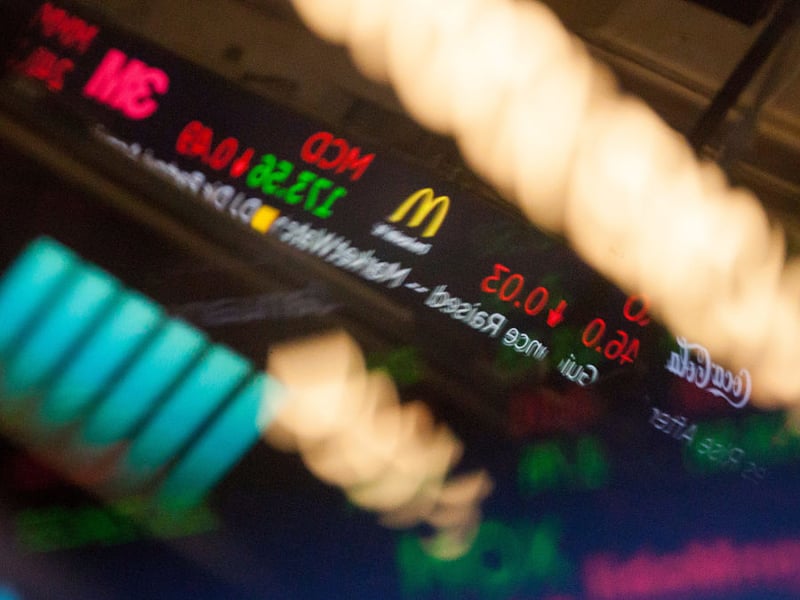

The surge in stocks that followed the Federal Reserve's decision Wednesday proved short-lived, as traders worry that officials could struggle to fight persistently high inflation amid the lingering threat of a recession.
Just a day after notching its biggest rally in about two years, the S&P 500 headed toward its worst session since June 2020, with 97% of its companies moving down.
The technology-heavy Nasdaq 100 tumbled 5%. The dollar climbed. A sell-off in long-end Treasuries pushed yields to multiyear highs, with the 10-year rate jumping above 3%.
The swing higher in long-dated yields matters for the broader economic picture because they influence borrowing costs for companies and home owners. Mortgage rates in the U.S. resumed their upward climb, reaching the highest level since August 2009. Data Thursday showed that productivity dropped in the first quarter by the most since 1947 as the economy shrank, while labor costs surged and illustrated an extremely tight job market.
By pushing back on the prospect of a jumbo hike of 75 basis points in June, Fed Chair Jerome Powell beat back the market’s most-aggressive predictions for the path of interest rates on Wednesday. However, he may also have inadvertently set the stage for more turbulence going forward. It’s still a very rocky road ahead, with pivotal economic data and global developments due within days that could seed doubts about the central bank’s approach.
“It’s going to be incredibly difficult for the Fed to normalize interest rates without having a negative impact on growth and earnings,” said Paul Nolte, portfolio manager at Kingsview Investment Management. “So stock prices are too high if we’re going to see a flattening or a decline in earnings per share.”
As of midday Thursday, the S&P 500 was down 3.8%, while the Nasdaq 100 was down 5% and the Dow Jones Industrial Average was off 3.2%. The MSCI World index fell 2.9%, while the Stoxx Europe 600 was down 0.7%.
Elsewhere, the pound slumped as investors looked past the Bank of England’s rate increase and turned their focus on forecasts for a recession in 2023. BOE Governor Andrew Bailey said the U.K. economy is already slowing because of a squeeze on consumer spending power, and that will help reduce inflation next year.

New joint research by T. Rowe Price, MIT, and Stanford University finds more diverse asset allocations among older participants.

With its asset pipeline bursting past $13 billion, Farther is looking to build more momentum with three new managing directors.

A Department of Labor proposal to scrap a regulatory provision under ERISA could create uncertainty for fiduciaries, the trade association argues.

"We continue to feel confident about our ability to capture 90%," LPL CEO Rich Steinmeier told analysts during the firm's 2nd quarter earnings call.

It's the mega-RIA firm's third $1B+ acquisition in just three months.
Orion's Tom Wilson on delivering coordinated, high-touch service in a world where returns alone no longer set you apart.
Barely a decade old, registered index-linked annuities have quickly surged in popularity, thanks to their unique blend of protection and growth potential—an appealing option for investors looking to chart a steadier course through today's choppy market waters, says Myles Lambert, Brighthouse Financial.
